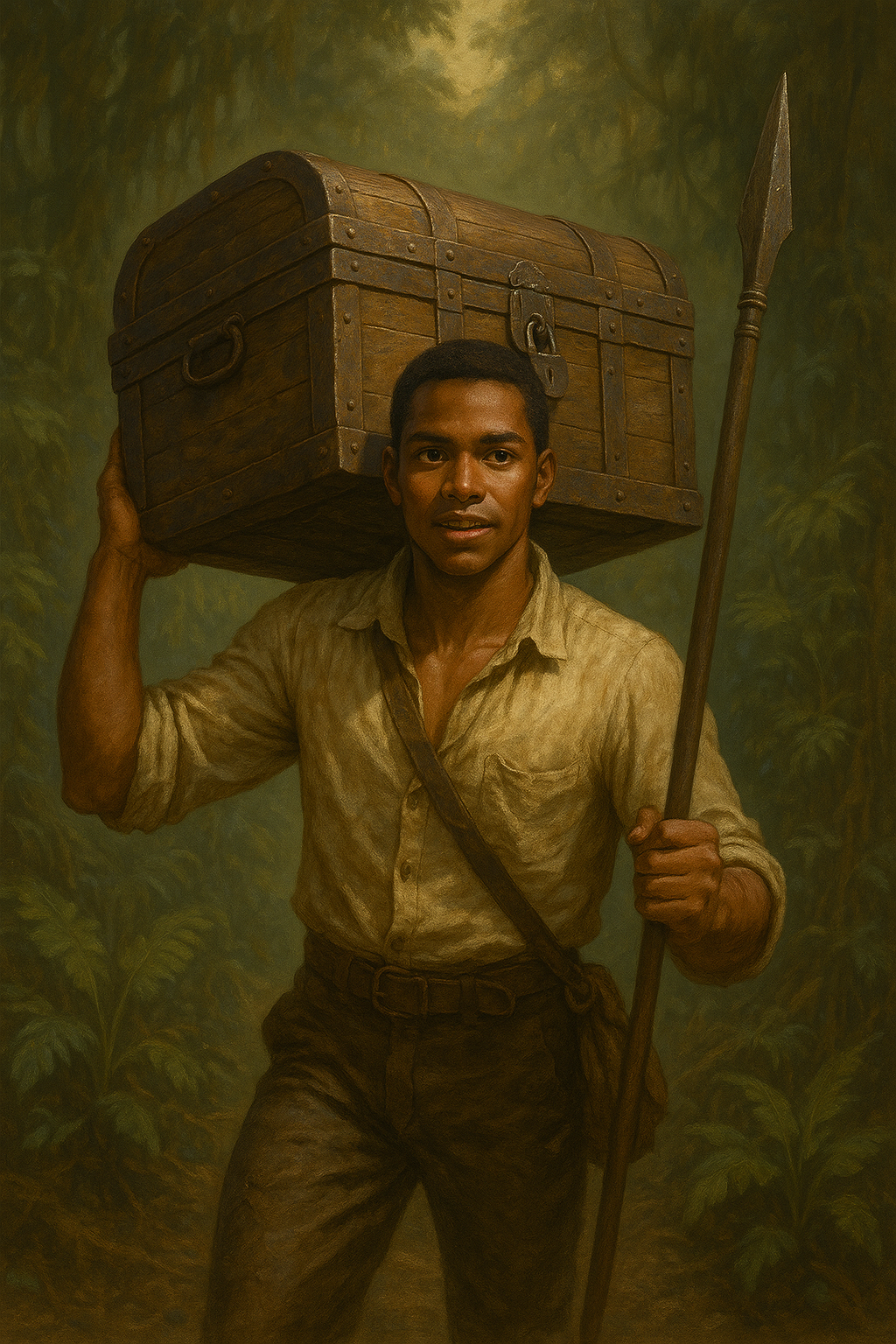When the Sea Wind went down in a violent storm off the uncharted coast of Nambara, Abagna Newton was one of only a few who survived the wreck. Tossed by the waves and battered by the sea, he washed ashore alone, bruised but breathing, on the edge of a vast, mysterious jungle.
For days, Abagna wandered the dense foliage with nothing but shredded clothes and a sharp piece of driftwood he had carved into a spear. The jungle was alive—with sound, with movement, with danger. Vines hissed like serpents in the night, and glowing eyes tracked him in the dark.
But Newton was no ordinary man. Raised in the coastal towns of the Gold Coast, he had grown up with stories of bravery and beasts, of survival and sacrifice. Now, those tales were his only guide.
He learned to move silently, to read the language of birdcalls and broken branches. He fought off a jaguar with nothing but fire and fury. He was captured by a tribe of shadow-skinned guardians who tested his courage and truth. And when he proved his honor, they led him to what they called “The Heart of the Jungle”—a forgotten temple swallowed by vines and mist.
Inside the temple, Newton faced his greatest trial—not claws or fangs, but fear itself. Hallways shifted. Shadows whispered lies. In the final chamber stood a single chest, encrusted with gold and sealed with riddles. With wisdom and nerve, Abagna opened it—not to gold alone, but maps, ancient relics, and jewels unlike any seen by modern eyes.
After months in the wild, he emerged from the jungle gaunt but gleaming, his chest strapped to his back and his heart burning with the fire of victory.
When he returned to his homeland, the people gathered to hear his tale. The chest was placed before the king, but Newton knelt not for glory. He knelt in thanks—for survival, for strength, and for the spirit of the jungle that shaped him.
Abagna Newton, once thought lost to the sea, became legend: The Man Who Conquered the Wild.



Yo, I’ve been hitting up Mig88 lately and it isn’t too bad, you know? Games are alright, nothing crazy, but payout’s decent. Check it out mig88 if you’re looking for something new.